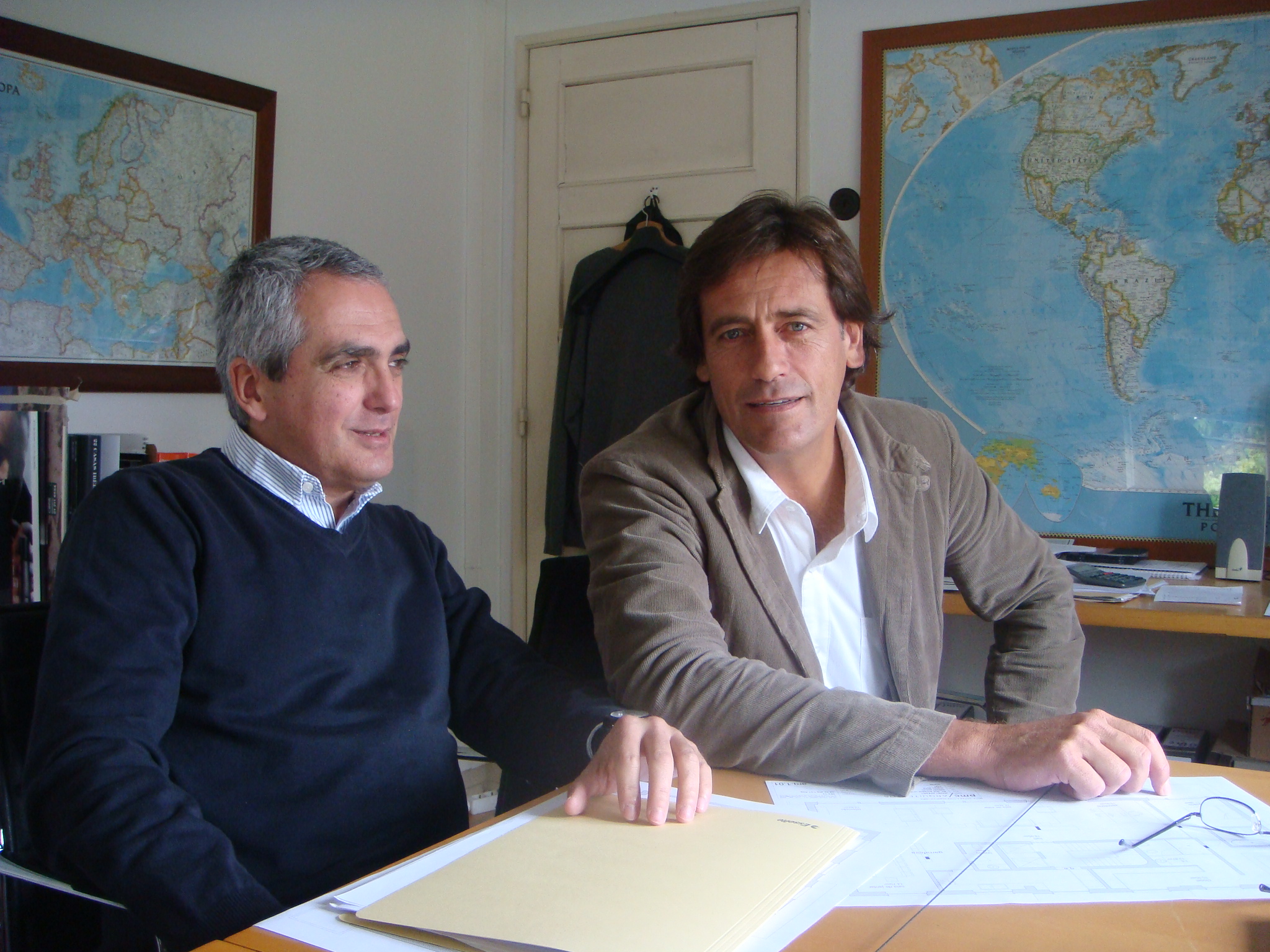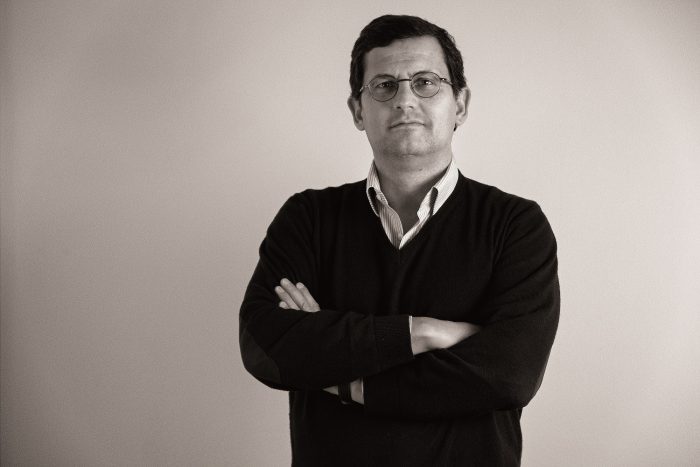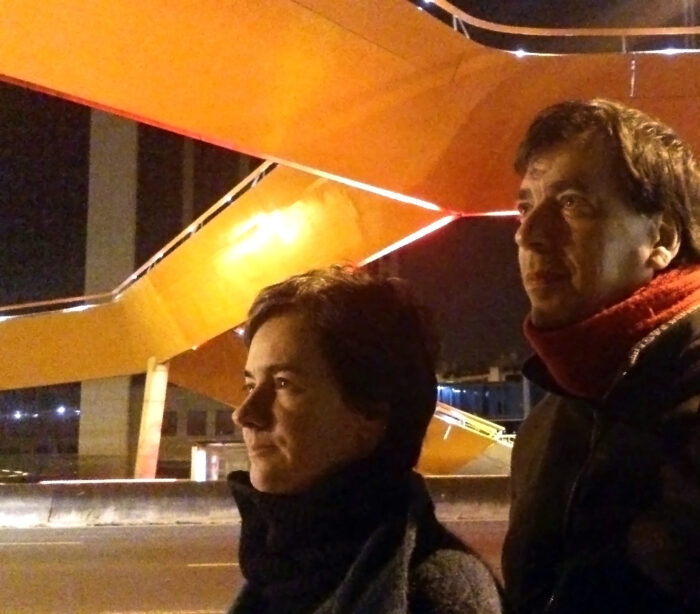A conversation with Arch. Carlos Tojal and Arch. Miguel Passos

A conversation with Arch. Carlos Tojal and Arch. Miguel Passos
'Everything we do is discussed. This is fundamentally a team effort where everyone adds'
What characteristics of your personality, and the way of each ones’ working, mostly contributed to found pmc / architects?
Nothing! Nothing unites us, we are totally different, but there is a great sense of complementarity between us. We have completely different characteristics, in terms of personality, work and the way of life itself. Carlos likes it better in the studio, he doesn’t like to go out. Miguel is the other way around, he likes to walk around. Hence the complement of personalities. In the styles of architecture we meet, we like the same things. There are no conflicts, there is everything else, but we think this is one of the advantages of our society. Nowadays, things are very difficult to take forward and it works with us, also because our work is for the society and not for each one as an individual.
What is the working mechanics of pmc / architects?
Everything we do is discussed. This is fundamentally a team work where everyone adds value. A junior architect has a role as important as others. It doesn’t happen that one of us does a job and shows it to the partner only at the end, for him to sign underneath. Every day we interrupt each other’s work to share ideas. And there is a third element that is Leo (Miguel’s wife who passed away a few months ago) who was like our partner, because of the work she did and the way she did it, she made us see architecture in a completely different way. Leo is the soul of this studio. She was our mentor, nothing was done without her seeing, there was a great care to listen to her opinion. It has an enormous importance in the life of this studio and is always here, so that we will have a publication about some works of the studio that will be called “Leonor Duarte Ferreira, pmc / architects”.
You competed with a project for the future Todos os Santos hospital but did not win. Do you feel that competitions are a fair way to assess the work of architects?
The Todos os Santos hospital is not going to be projected by us, despite having been a three-year struggle and a huge investment. Three years is a long time for a non-victory, it’s hundreds of hours of work, but it was a very attractive project. What we learned has no classification, it was huge. We dreamed a lot about the project but in the end it was a question of numbers. It is an area that interests us a lot, it is very specific, very difficult, but very attractive. Are the contests fair? I do not know. In design / construction contests, at the end of the first or second phase, the quality of the project does not matter, you only ask “how much does it cost?” In public tenders or by invitation, when we lose we always feel wronged, not least because competing costs a lot of money, fortunes are spent, and the ratio of achievement is very low, but only those who have a vocation do it and nothing gives more enjoyment than the freedom that we are allowed in competitions. In the final stages, we completely forget the life that exists beyond the
contest, we live for that, we play for passion.
Do you feel free or are there many external constraints on the performance of your activity?
The worst is the legislation. Things almost lose their grace because they are so ruled. Such high targets have been set, that they do not even distinguish existing buildings from new ones, and that brutally hamper the processes for rehabilitation of buildings. I can give you an example of a building in Lisbon, which we had to rehabilitate, on a sloping street, where we were unable to respect all the decrees and had to sign a term of responsibility. In reality, we are unable to guarantee accessibility for all disabled people when the street to reach this house also does not have these conditions. In other words, even if we managed to do it, people were held prisoners in that building. There is no flexibility, the law is blind and it has made construction almost unaffordable. Then there are funny situations, for example, when you opened a competition for Casa da Música in Oporto it was mandatory to have experience in things like that. Like that, nobody can move forward. It is told Arch. Siza Vieira has said “I can’t compete ?!”
Are there any projects that you consider special?
Arch Miguel – I have one, which is the project for a wine cellar that was built in Alentejo. I always thought it was a building that had never been seen or had never been loved, until there was a photographer who did a job with him, and then the return has been huge. I consider it important because it is an industrial building, which is usually a type of building that has to have a very high cost containment because it has to be functional. In this case, we decided to cover it with cork and the result was an architectural project that I really like. As it is a natural material, it evolved, it was brown and now it is gray.
Arch Carlos – I particularly liked the design of a nursery, which was “left in mothballs”. It was supposed to be built in a garden in Cascais, it was a contest that we won, the City Council of Cascais paid for everything but ended up not going forward, I’m not sure why. The garden was a jewel and the project is, even today, contemporary, and this is a characteristic that we like in architecture.
What would you like to do that you haven’t had a chance yet?
Arch Miguel – I would like to make a museum. Because it would give me the possibility to do something to be experienced by many people. It is a space whose occupation changes and has to be designed with the intention of being visited by people of all characteristics. And designing a space whose function is to highlight other things is a kind of subversion of architecture because the building must not stand out too much, there cannot be an excess of architecture, that is not the purpose of the museum.
This interview is an integral part of Revista Artes & Letras # 31, May 2012
Partially automatic translation from portuguese: some expressions may differ from their actual meaning.
News & Interviews
A conversation with Arch. Rodrigo Sampayo
'Brandchitecture is based on the philosophy that a successful organization is sustained by motivated teams. It is with this vision that OPENBOOK has developed projects that reflect its clients' DNA' Read more
A conversation with Eng. Tarik Chaaban
‘In Malawi, interventions on the north and south sections were the first investments after several decades without any significant maintenance on these railways’ Read more
A conversation with Arch. Telmo Cruz and Arch. Maximina Almeida
'When architects manage to correctly do the exercise of building a city, this is valuable by itself. We feel great in the city. ’ Read more




